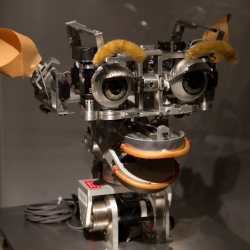
Robots want to invade your home, take your job, and steal your wife. Maybe not that last one (yet). But as unemployment remains stubbornly elevated (7.9%) people are searching for answers. Among the usual suspects—foreign competition, too much regulation, too little spending, banks—technology is increasingly bearing the blame.
In a recent episode of 60 Minutes, aired January 13, Steve Kroft notes “one of the hallmarks of the 21st century is we are all having more and more interactions with machines and fewer with human beings.” And as robots march “out of the realm of science fiction and into the mainstream” the result is “technological unemployment.” According to Kroft, “There is a lot of it going around with more to come.”
At this point we could level all the usual defenses—that automation has been happening for a few centuries. That there are now, and have always been, periods of discomfort as some jobs disappear and others are created. That for those taking part in technology’s rapid march, the last few hundred years have shortened the work day and week, witnessed the advent of retirement and vacation, increased income, added years to the human lifespan, and improved overall living conditions.
That while unemployment is stubbornly above average right now, it’s nowhere near the levels experienced for over a decade during the Great Depression. And as George Mason’s Don Boudreaux points out, that was before “the Internet, the microchip, and even the solid-state transistor.” To imply the latest round of technologically-driven productivity gains are fundamentally new is misleading.
